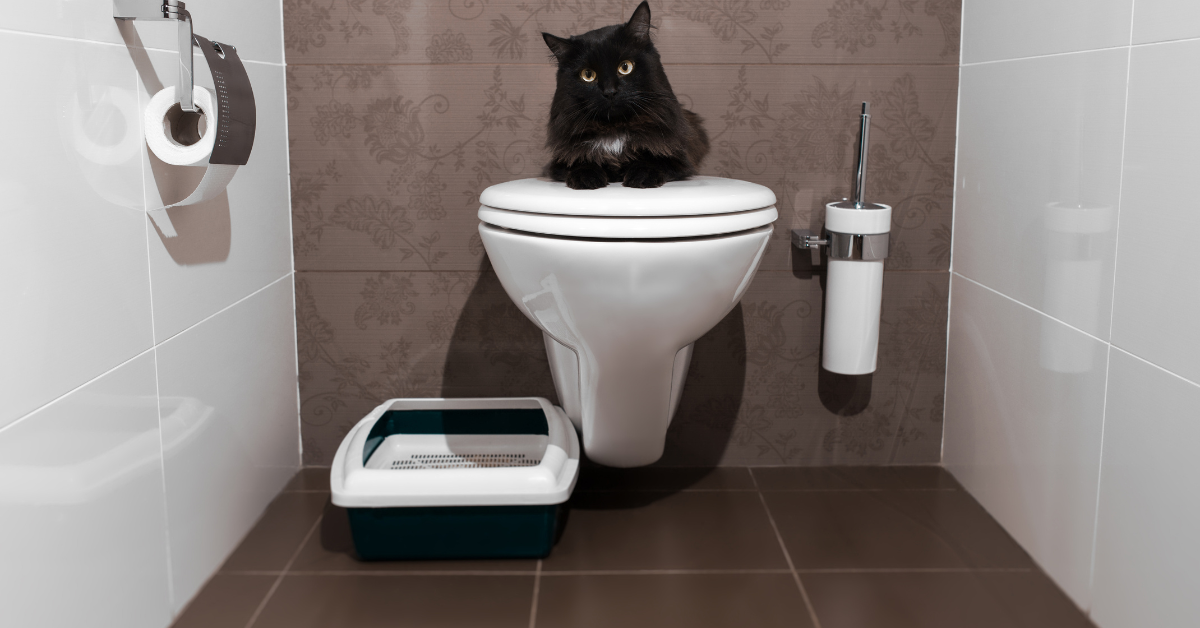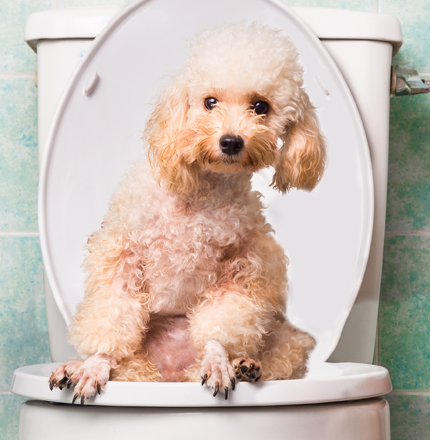The Risks of Animal Waste in the Toilet
The Risks of Animal Waste in the Toilet
Blog Article
Each person will have their own individual opinion in relation to Can You Flush Dog and Cat Poo Down the Toilet?.

When it involves disposing of waste, especially animal waste, lots of people commonly resort to the convenient alternative of flushing it down the toilet. Nonetheless, this relatively easy option can have serious repercussions for the atmosphere and public health. In this article, we'll discover why flushing animal waste down the toilet is a poor concept and provide alternate approaches for appropriate disposal.
Introduction
Appropriate garbage disposal is critical for keeping environmental sustainability and public health. While it might appear harmless to flush animal waste down the bathroom, it can lead to different problems, both for the atmosphere and human wellness.
Dangers of flushing animal waste
Ecological effect
Flushing animal waste presents hazardous germs and pathogens into rivers, which can negatively influence aquatic ecosystems. These microorganisms can contaminate water sources and damage aquatic life, interfering with fragile communities.
Public health worries
Pet waste includes unsafe bacteria such as E. coli and Salmonella, which can pose severe wellness risks to people. Flushing pet waste down the toilet can infect water products, causing the spread of conditions and infections.
Alternatives to flushing
Instead of purging animal waste down the toilet, there are several alternative disposal methods that are much more environmentally friendly and hygienic.
Composting
Composting animal waste is an environment-friendly method to dispose of it. By composting, organic matter is broken down right into nutrient-rich soil, which can be utilized to feed gardens and plants.
Garbage dump disposal
Taking care of pet waste in a landfill is another alternative. While not as environmentally friendly as composting, it is a safer alternative to flushing, as it stops the contamination of water resources.
Family pet garbage disposal systems
There are specialized pet garbage disposal systems readily available that securely and hygienically dispose of animal waste. These systems typically use enzymes to break down waste and eliminate odors.
Steps to correct pet garbage disposal
To guarantee correct disposal of animal waste, follow these actions:
Scooping and nabbing waste
Routinely scoop and bag animal waste using biodegradable bags. This stops waste from polluting the setting.
Making use of assigned waste containers
Dispose of bagged pet waste in designated waste containers, such as garden compost bins or landfill containers. Prevent flushing it down the toilet whatsoever prices.
Cleansing litter boxes and animal areas routinely
Regularly clean litter boxes and pet areas to prevent the buildup of waste and microorganisms. Use pet-safe cleaning items to keep health.
Benefits of correct disposal techniques
Adopting correct disposal techniques for pet waste offers a number of benefits:
Reduced environmental pollution
Proper disposal techniques reduce the threat of environmental pollution, safeguarding waterways and ecological communities from contamination
Reduced danger of water contamination.
By avoiding flushing animal waste down the toilet, the risk of water contamination is dramatically reduced, securing public health.
Improved cleanliness and health
Appropriate disposal approaches advertise much better cleanliness and health, creating a safer atmosphere for both people and animals.
Conclusion
To conclude, flushing animal waste down the toilet is unsafe to the environment and public health. By taking on alternate disposal methods and adhering to proper here waste management practices, we can minimize the unfavorable effect of animal waste and contribute to a cleaner, healthier world.
What To Do With Dog Poo – The Do's And Don'ts Of Disposing Of Faeces
Dog poo bins
Some councils provide dedicated dog waste bins in popular dog-walking areas that can take dog poo that has been bagged but you can legally dispose of dog waste in any public litter bin, as long as it is securely bagged. This also applies to your wheelie bin at home.
Do not flush
Water companies do not recommend flushing dog faeces down the toilet because certain parasites can survive the water processing treatment and are potentially harmful to humans. You should also never consider flushing dog poo that has been bagged down the toilet as the bags will not break down and instead create severe blockages in the sewage system.
In the woods
The Forestry Commission promotes a ‘stick and flick’ method for dealing with waste in the woods. This means finding a stick and using it to flick any poo from off the path so that it is out of the way of other walkers. You could also bury it as long as it is not in an area where there might be livestock.
Livestock
Parasites found in dog poo can be transmitted to livestock if they inadvertently eat infected faeces that has been left on grazing land. This could result in the death of sheep or abortion in cattle so you should always make sure you pick up your dog’s waste in fields where livestock could be present.

Regularly clean litter boxes and pet areas to prevent the buildup of waste and microorganisms. Use pet-safe cleaning items to keep health.
Benefits of correct disposal techniques
Adopting correct disposal techniques for pet waste offers a number of benefits:
Reduced environmental pollution
Proper disposal techniques reduce the threat of environmental pollution, safeguarding waterways and ecological communities from contamination
Reduced danger of water contamination.
By avoiding flushing animal waste down the toilet, the risk of water contamination is dramatically reduced, securing public health.
Improved cleanliness and health
Appropriate disposal approaches advertise much better cleanliness and health, creating a safer atmosphere for both people and animals.
Conclusion
To conclude, flushing animal waste down the toilet is unsafe to the environment and public health. By taking on alternate disposal methods and adhering to proper here waste management practices, we can minimize the unfavorable effect of animal waste and contribute to a cleaner, healthier world.
What To Do With Dog Poo – The Do's And Don'ts Of Disposing Of Faeces
Dog poo bins
Some councils provide dedicated dog waste bins in popular dog-walking areas that can take dog poo that has been bagged but you can legally dispose of dog waste in any public litter bin, as long as it is securely bagged. This also applies to your wheelie bin at home.
Do not flush
Water companies do not recommend flushing dog faeces down the toilet because certain parasites can survive the water processing treatment and are potentially harmful to humans. You should also never consider flushing dog poo that has been bagged down the toilet as the bags will not break down and instead create severe blockages in the sewage system.
In the woods
The Forestry Commission promotes a ‘stick and flick’ method for dealing with waste in the woods. This means finding a stick and using it to flick any poo from off the path so that it is out of the way of other walkers. You could also bury it as long as it is not in an area where there might be livestock.
Livestock
Parasites found in dog poo can be transmitted to livestock if they inadvertently eat infected faeces that has been left on grazing land. This could result in the death of sheep or abortion in cattle so you should always make sure you pick up your dog’s waste in fields where livestock could be present.

Hopefully you enjoyed reading our piece about 4 Reasons Why Dog Poop Cleanup is Important. Thanks a ton for taking time to read through our blog post. Do you know another individual who is in the market for the topic? Please feel free to promote it. I recognize the value of reading our article about Don't Flush Your Pets Poo Down The Loo, Vet Warns.
Call Today Report this page